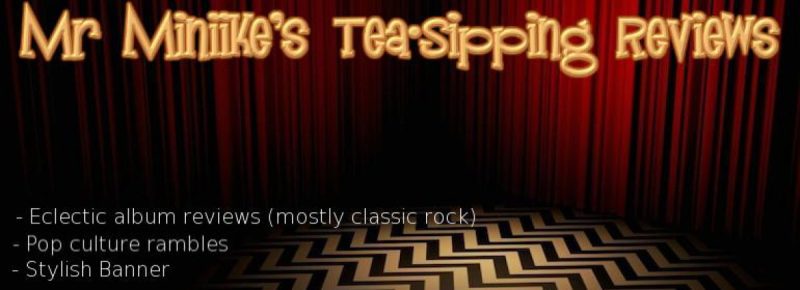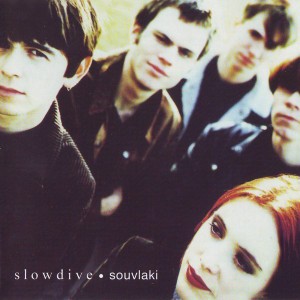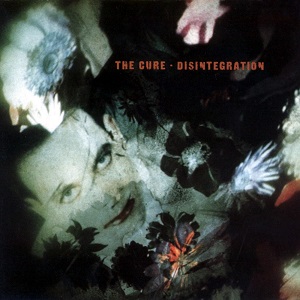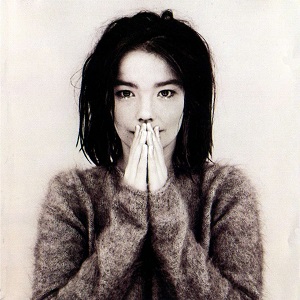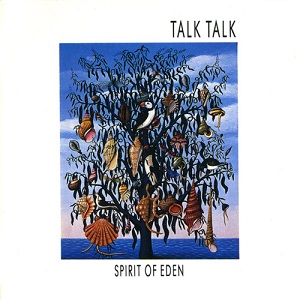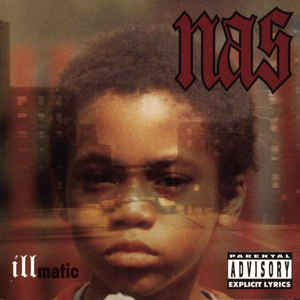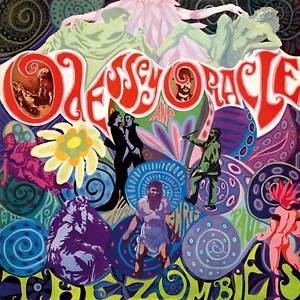
Swans is unrealistically good.
After a couple run-throughs, that’s the best intro I can come up with. I’ve wanted to get back to writing proper album reviews for a long time now, and this album has always been at the top of the list, in no small part thanks to the fact that my last full written review was of the The Seer. But To Be Kind, as much as I love it (and let’s be clear, as of now it has a very secure place in my all-time top ten), is difficult to dissect in any meaningful way. You know the kind of review that’s really scant on detail because the subject is like “such an experience yo”? I’ve written a couple of those in my day. I refuse to let that happen with To Be Kind. It’s an insurmountable effort of an album that deserves a proper review, no matter how long it takes me to stop sobbing in the corner and actually write it.
So, uh, it’s been a while since I wrote a review, but I think background is the first stop. Swans started as a no-wave band, grew into post-punk or gothic rock or something, broke up, came back, and started making super long albums with an emphasis on repetitive groove-based melodies and constantly building grand instrumentation. Throughout their lifespan Michael Gira and co have jumped from genre to genre and style to style with the goal of finding the best possible way of communicating their epically scaled misanthropic dreariness. As such, it’s hard not to view any given Swans album as a kind of culmination of all that came before it, in aim if not in quality, which if nothing else makes Swans an eternally fascinating discography to study.
Thankfully, there is “something else”: Gira and co are the best in the business at making musical expressions of misanthropic dreariness. From the ear-defiling audio smog of Cop to the demonic hymns of Children of God to the gothic sweep of White Noise From The Mouth of Infinity to the indescribably broken mental soundscape of Soundtracks For The Blind, Swans is constantly keeping their fans on their toes and their ambition never falters. I can easily imagine disliking Swans, but I can never imagine not respecting them. Even as a person who tends to gravitate towards happier, idealistic music, Swans moves me in a way no other band really does, or even tries to, simply because they have the nerve to even TRY.
So here we go, 2014. Swans has been reunited for a few years now, with their 2012 album The Seer being lauded across the board. I’ve seen multiple people claim it as their favorite album of all time, which is impressive given how audience-alienating it can be. In my case, sometimes a bit TOO alienating, as not all of the grooves hit home runs or warranted their repetition, but it was nonetheless a stellar album that provided a cohesive and absorbing musical journey into the darkest depths reachable by human ears. There’s always something hiding in The Seer, always something looking at you. In fact, it’s probably chasing you, but you’ll never get a good look at it. It’s an inescapable pit of an album.
To Be Kind is the opposite in almost every way. This is a blindingly bright album, one that burns your eyes from prolonged exposure. The production and mixing are incredibly clean, making sure you can hear every note of guitar or piano or cello or synth or chorus or whatever. This choice often attracts derision from hardcore Swans fans, especially those who prefer their smoggy, brutal no-wave material, but I think it works perfectly. This album definitely gets under my skin, but it’s not some kind of creeping existential chill, it’s an awe-inspired rush of blood. I don’t think there’s a single piece of recorded music that shakes me more.
Well, let’s get to doing some things we do then. “Screen Shot” is a perfect opener. We kick off with a foreboding guitar groove played with shimmering, simmering tone, always feeling like it’s on the verge of exploding. In typical Swans fashion, it’s slowly joined by other elements, especially percussion, which ranges from light and pittering to deep and pounding to moderate and groovy. Gira enters with stream of consciousness style lyrics, with some foreshadowing (though it doesn’t tie into anything beyond surface-level as far as I can tell). Gira’s vocals on this album are just quivering with insanity. He sounds scathing, worn down, and like he could feasibly be coughing up acid in-between takes. It’s hard to even hear him as a person, at least not a living one. If a corpse could sing, it might sound like Michael Gira. I also love his echoing backing moans, which sound like they should be soundtracking Temple of Doom or something.
Another guitar line comes in, stretchy and crunchy at the same time. Possibly my favorite groove on the song is the ritualistic piano that comes in soon after, although that could just be my love for the instrument. Now that we’ve assembled the whole instrumental cast, all that’s left is to slowwwllly ratchet up the intensity over the next few minutes. A lot of this tension escalates in the increasing tempo of Gira’s vocals, which list all the things not present in this frozen moment. As he decides to choose the present over preserving the past (at least, I think that’s what’s happening? I don’t understand Swans lyrics at all) the instruments swirl beautifully into pure white wall of sound, which abruptly falls off at the end. Whew! At a measly eight minutes, and with a plethora of perfectly written grooves and a minimum of abrasiveness, this is one of the most accessible songs on the album, and I would say a good recommendation for those who are looking to get into Swans.
Not so much the next song, “Just A Little Boy (For Chester Bennet)”, but that doesn’t make it any less amazing. Another unnerving backing drone, with timid percussion and a lethargic groove that must be heard to be believed. Seriously, I get it stuck in my head all the time when I’m tired. It tries to walk around and function normally, but just keeps thudding to the floor in infectious rhythm. Gira’s vocals have an odd, distant effect on them that feels like you’re hearing something while, once again, really tired. Fitting, as he calls for sleep in various locations of apparent safety. The groove doesn’t get any more energetic, but it does get louder and heavier, until suddenly it starts to evoke less lethargy and more standing in the shadow of a giant. Fitting, as Gira takes on a much-maligned nasal tone to tell us he’s just a little boy. I think the effect is just wrong enough that it works. Same for the incredibly unnerving “laugh track”, that really magnifies the feeling of isolation. Just you, that lumbering sleepy monster of a groove, and a distant crowd mocking your every action, with none of the potential escape or comfort of the first few minutes. Even the groove starts to pick up energy; it stops thudding and starts stamping, trying to weed out the insect currently listening to the album. The last three minutes or so bring in occasional bursts of pure buzzing force, and the effect gives me chills. Man, can you believe I thought this song was BORING the first few times I listened to this album? Now I wouldn’t lose a single one of its twelve minutes.
Well, if you still think that was boring, check out the next song, “A Little God In My Hands.” This thing is absolutely NASTY, and not just in the lyrics. It’s driven by a downright funky (!!!) in-your-face guitar groove that never ceases to make me headbop like mad. Gira groans disgustedly through the lyrics, which are about something I haven’t bothered to dissect. There’s an odd semi-echo effect on him that’s difficult to describe, and extremely offputting. And all of a sudden…BLAM. Dissonant, cacophonous wall of brass that sound like every player is emptying their entire lungs into their instruments. With virtually no buildup, it’s an unexpected, abrasive, amazing climax. Then an instrument I can’t identify but sounds like something stringy comes in with an additional groove, which is also amazing, catchy and complex at the same time. And some of that brass comes back for the backing drone! Gira is joined by a chorus singing ANOTHER incredible groove (I swear, there’s more and better grooves on any given song here then there are in some funk artists’ entire catalogues). It’s an absolute unpleasant, blood-curdling mess, grooves on top of grooves on top of grooves, instruments on top of instruments on top of instruments. It’s amazing.
Then we get to the big one. Ho boy. “Bring The Sun/Toussaint L’Ouverture” seems to be everyone’s pick for best song on the album, and once upon a time I would have agreed, and though I don’t anymore it’s still an experience like no other. A shining, fluttering synth. Some distant crashing cymbals. A subdued, distorted drone of guitar feedback. MASSIVE SUDDEN MUSICAL ORGASM OF UNRELENTING DRUMS AND GUITARS. And that’s all in the first minute! It’s useless to try and describe the sound on this song. It’s so…pure. So endlessly cathartic. It feels like you’re being very painfully cleansed. Purified by the sun itself. The force pulls back, leaving you with the insurmountable drone. I’ll say it right now, it’s the best drone Swans have ever done. It IS a star. It feels like it should be powering something. It’s futuristic yet organic. Gira moans in complete awe of the spectacle, and a minor but beautiful guitar groove shyly pushes its way forward. Gira chants, like he’s in a ritual for worshipping the sun. The groove builds with him, throwing in occasional flourishes, especially on that lone guitar. The percussion kicks in, and I get giddy thinking about what’s coming. It arrives…a chorus chanting “SUUUUUUUUNNNNNN” in increasingly loud and intense fashion. And for about four minutes, it’s nothing but this chanting and the instrumentation getting louder and more powerful. I have no idea how they were able to keep it up for that long, but they did, and it’s nothing short of one the greatest musical experiences there is.
It climaxes and falls away, and with a rush of roaring, crunchy guitars we’re plunged into the second half of the song. After the piano-driven messy fallout of that incredible climax, we hear a saw cutting wood. A hammer hitting a nail. The voices of children. A horse. Gira’s pained, prolonged moans. That wonderful shimmering synth from earlier. Unnerving parts from guitars and strings. Another noisy climax! Whistles? A wonderful groovy bassline over the remaining drone. Gira screaming the name of some French dude and whatever other words strike his fancy. It is a bit stagnant, and as such not as amazing as “Bring The Sun”, but it’s still a sonically enveloping experience. Together, the thirty-four-minute pair would make a high contender for best Swans song if it wasn’t for another piece coming up in a second here.
Wrapping up Disc 1 is the much-needed breather of “Some Things We Do”, a five-minute string drone with Gira creepily listing off a bunch of largely primal, quintessentially human activities. It doesn’t build to much, but I’ll forgive that because of its short length, place in the tracklisting, and interesting lyrical premise. And hey, the groove is still catchy and unnerving! One disc in, and no song is short of amazing.
The same is definitely true of “She Loves Us”, the Disc 2 opener, my favorite song on the album, my favorite Swans song, and one of my favorite pieces of music EVER. This doesn’t even sound like a song, it feels like a thought experiment come to life: what is the most massive, visceral, absorbing piece of hypothetical music that could be made in a general rock framework?
After a brief skittering intro and a horn swell, we get the groove. THE groove. A groove that could melt through planets. The guitar and drum interplay is absolutely unassailable. Emphasizing the crushing heaviness is a chanting chorus with ANOTHER powerful groove. This soundscape is possibly my favorite on the album, it’s useless to try and explain the waves…nah, TSNUAMIS of sonic power that insist on pinning me down over and over with each repetition. Eventually it calms into a sea of chimes and feedback, drone mini-climaxes washing over. After that brief respite, we hit the meat of the song: a prolonged psychy, bluesy, crunchy, fuzzy freakout session. It’s long and exhausting, but so flavorful and entrancing. The guitars chug in absolute grandiosity. The drums are absolutely PUMMELING, matching the most powerful percussive moments on The Seer. Gira stoops to his most insane yelps yet. And eventually, we get the second best vocal groove in Swans history (behind only “Avatar”)…“Halleeeeluuuuiaaaaaah, Halleeeeluuuuiaaaaaah, Halleeeeluuuuiaaaaaah”…did I mention the freakout is STILL BUILDING?!? With occasional new sounds to add to the tangy chaos? This song absolutely enthralls me. It’s so primal, so human…so oddly beautiful in its chaos.
After that storm comes the calm of “Kristine Supine.” It’s gorgeous, without reservation. The quiet guitar line, the ethereal main groove of what I THINK is a synth, but it could just be a particularly bright guitar, even the vocal melody and delivery have a transcendent, divine tone to them. The swirling winds are a perfect fit as well. The main vocal repetition isn’t exactly interesting, but does break into a new groove of percussion and (OH YES) bells. The percussion is the main driving of the development this time, with its area of stompage becoming larger and larger. The backing drone starts to moan, and the bells hang in the back of the mix, always tolling in the distance. It’s somber, solemn, occasionally very pretty, and above all deeply moving.
It could not be more different from the wildly confrontational “Oxygen.” It gives “A Little God In My Hands” competition for the nastiest song here. Its catchy main guitar groove crunches like you wouldn’t believe, the drumming works into an untamable frenzy, and Gira goes COMPLETELY off the rails in his most disgusting and unrestrained vocals yet. There’s nothing quite to match that surprise horn explosion of “A Little God In My Hands”, but there’s no downtime either (besides which, some very off-kilter horn flourishes come in about halfway through). I cannot comprehend anyone listening to this song and not getting a huge rush from it. The album in general has an unmistakable free spirit, but this is the wildest and most animalistic it gets. And the constantly ascending momentum never gets old for eight minutes!
“Nathalie Neal” starts as a much more subdued, dark soundscape. More of that glorious chanting (which basically serves as the drone this time), beautiful silvery keyboards (?), chimes, and a lo-fi speech recording snippet that reminds me of Soundtracks For The Blind. It’s also quite lovely, with “Kristine Supine” and this making rather nice bread for the raw bleeding meat that is “Oxygen.” Like its fellow sandwich end, the building tension is largely introduced by escalating percussion, which isn’t terribly interesting but the soundscape is good enough that it’s still great.
At long last, the journey ends with the title track. The vocal melody and delivery have the cadence of a nursery rhyme, and work disturbingly well with the dark string drone and light keyboard/guitar groove. It has a transcendent feel to it, especially those magnificent building swells, receding and coming back, getting bigger and bigger each time, until eventually it’s all over. It’s not as memorable a finale as, say, the drum sequence on The Seer’s “Apostate”, but it’s a fitting and satisfying finale nonetheless.
This album is impossible. It’s unfair that Gira and co were able to make this. Music like this shouldn’t be within ANYONE’S reach, but here we are. It’s not my favorite album of all time, but it may be the most powerful THING ever recorded, at least if my tastes and experiences are the gauge. Like I said, initially I thought this wasn’t as good as The Seer, but as much of a great experience as that album is, it doesn’t leave me with the same feeling of having encountered something unknowable, something unattainable. I mean, just look at all the pretentious buzzwords in this review! They have to be fueled by SOMETHING.
Whelp, it’s good to be back. Momentarily.
Music: 5/5
Identity/Themes: 5/5
Lyricism: 5/5
Vocals: 5/5
Diversity: 4/5
Resonance: 5/5
SOUNDTRACK TO: a mass blood sacrifice to keep the sun alive. Or maybe the mind of a sensitive person. Depending.
10/10
Best Songs:
- She Loves Us
- Bring The Sun/ Toussaint L’Ouverture
- Screen Shot
- Oxygen
- Just A Little Boy (For Chester Burnett)
Worst Song: None of them, they’re all 10/10 mindblowing. Okay, I guess “Kristen Supine” if you pushed me.
Listen here:
